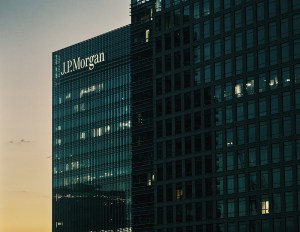Behind JPMorgan Chase’s Takeover of First Republic Bank
What the deal means for the failed bank’s commercial and residential real estate loan portfolio.

JPMorgan Chase has agreed to acquire First Republic’s assets. Photo by Precious Madubuike via Unsplash
JPMorgan Chase is taking over First Republic Bank’s assets, with the Federal Deposit Insurance Corp. agreeing to provide loss share agreements for acquired single-family residential mortgages and commercial loans, along with $50 billion of five-year fixed-rate term financing.
The banking giant’s agreement to purchase the substantial majority of First Republic’s assets includes the assumption of its deposits and certain other liabilities, including uninsured deposits, from the FDIC. The California Department of Financial Protection and Innovation formally shuttered San Francisco-based First Republic on May 1, appointing the FDIC as receiver. The FDIC entered into a purchase and assumption agreement with JPMorgan Chase, which won a competitive auction for the assets.
READ ALSO: Office Owners Face Financing Dilemma
The FDIC and JPMorgan Chase will share in the losses and potential recoveries on the real estate loans covered by the loss share agreement, the federal agency said in a statement, which noted that the loss share transaction is projected to maximize recoveries by keeping First Republic’s assets in the private sector. Furthermore, the federal insurer stated that it expects the deal will minimize disruptions for borrowers.
Takeover details
JPMorgan Chase is not assuming First Republic’s corporate debt or preferred stock, the bank said in a statement. However, the bulge bracket firm will take over some $173 billion in loans and $30 billion of securities and assume approximately $92 billion of deposits, including $30 billion of large bank deposits, which will either be repaid once the deal closes or will be eliminated in consolidation.
First Republic’s businesses will be under the purview of JPMorgan Chase’s Consumer and Community Banking Co-CEOs, Marianne Lake and Jennifer Piepszak. The regional bank had approximately $229.1 billion in total assets and $103.9 billion in total deposits as of April 13, according to the FDIC’s statement. First Republic’s 84 branches, which are spread across eight states, have legally become JPMorgan Chase locations, and were opened as usual on May 1, with in-person and online client services uninterrupted.
JPMorgan Chase expects to recognize an upfront, one-time, post-tax gain of approximately $2.6 billion, not reflective of some $2 billion of post-tax restructuring costs anticipated over the next 18 months, according to the statement. The deal is expected to generate more than $500 million of incremental net income annually, not including approximately $2 billion of post-tax restructuring costs that are expected throughout 2023 and 2024. The FDIC estimates that the ultimate cost to the Deposit Insurance Fund will be approximately $13 billion.
The FDIC recently took control of a pair of ill-fated financial institutions, New York-based Signature Bank and Santa Clara, Calif.-based Silicon Valley Bank, prominent failures that put U.S. regional banks under a microscope and signaled tighter lending standards. The financial tumult of recent months has stretched beyond U.S. regional players, however, most notably toppling Zürich-based international banking giant Credit Suisse.







You must be logged in to post a comment.